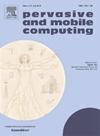Octopus:车联网中背包模型驱动的联合学习客户端选择
IF 3.5
3区 计算机科学
Q2 COMPUTER SCIENCE, INFORMATION SYSTEMS
引用次数: 0
摘要
联邦学习(FL)作为一种分布式的实时车辆数据处理方式,在车联网(IoV)中被广泛用于改善驾驶体验和提高服务质量。但考虑到车辆节点数据和设备的异构性,随机选择参与模型训练的车辆存在数据偏倚、资源消耗大、收敛速度低等问题。为此,我们提出了Octopus,它由两个部分组成:1)设计了一种基于重要性抽样的局部损失计算方法,为每个客户端请求资源信息,并应用重要性抽样技术评估每个客户端对全局模型收敛的贡献,然后利用以每个客户端的局部损失作为项目值,以系统总训练时间作为背包容量的背包模型加速客户端收敛;Ii)设计基于背包模型的联邦学习客户端选择方法,选择局部损失最优、模型上传速度最大的客户端参与训练。在每一轮训练中,这些客户端在预定义的时间内下载和更新模型,然后使所选的客户端能够继续上传更新的模型参数,以帮助服务器有效地完成模型聚合。实验结果表明,与8个最先进的基线相比,Octopus在异构数据下将模型精度提高了2.64% ~ 32.61%,在设备异构数据下将模型精度提高了1.97% ~ 11.74%。本文章由计算机程序翻译,如有差异,请以英文原文为准。
Octopus: Knapsack model-driven federated learning client selection in internet of vehicles
Federated learning (FL), as a distributed way for processing real-time vehicle data, is widely used to improve driving experience and enhance service quality in Internet of Vehicles (IoV). However, considering the data and devices heterogeneity of vehicle nodes, randomly selecting vehicles that are involved in model training would suffer from data skewness, high resource consumption, and low convergence speed. To this end, we propose Octopus, which consists of two components: i) an importance sampling-based local loss computation method is designed to request resource information for each client and apply the importance sampling technique to assess each client’s contribution to the global model’s convergence, followed by utilizing a knapsack model that treats the local loss of each client as the item value, while treating the total system training time as the knapsack capacity to accelerate the client convergence; ii) a knapsack model-based federated learning client selection method is designed to select the client with optimal local loss and maximum model uploading speed to participate in training. In each training round, these clients download and update the model within a predefined time, followed by enabling the selected clients to continue uploading the updated model parameters for assisting the server to efficiently complete the model aggregation. Experimental results show that Octopus improved the model accuracy by 2.64% 32.61% with heterogeneous data, and by 1.97% 11.74% with device heterogeneity, compared to eight state-of-the-art baselines.
求助全文
通过发布文献求助,成功后即可免费获取论文全文。
去求助
来源期刊

Pervasive and Mobile Computing
COMPUTER SCIENCE, INFORMATION SYSTEMS-TELECOMMUNICATIONS
CiteScore
7.70
自引率
2.30%
发文量
80
审稿时长
68 days
期刊介绍:
As envisioned by Mark Weiser as early as 1991, pervasive computing systems and services have truly become integral parts of our daily lives. Tremendous developments in a multitude of technologies ranging from personalized and embedded smart devices (e.g., smartphones, sensors, wearables, IoTs, etc.) to ubiquitous connectivity, via a variety of wireless mobile communications and cognitive networking infrastructures, to advanced computing techniques (including edge, fog and cloud) and user-friendly middleware services and platforms have significantly contributed to the unprecedented advances in pervasive and mobile computing. Cutting-edge applications and paradigms have evolved, such as cyber-physical systems and smart environments (e.g., smart city, smart energy, smart transportation, smart healthcare, etc.) that also involve human in the loop through social interactions and participatory and/or mobile crowd sensing, for example. The goal of pervasive computing systems is to improve human experience and quality of life, without explicit awareness of the underlying communications and computing technologies.
The Pervasive and Mobile Computing Journal (PMC) is a high-impact, peer-reviewed technical journal that publishes high-quality scientific articles spanning theory and practice, and covering all aspects of pervasive and mobile computing and systems.
 求助内容:
求助内容: 应助结果提醒方式:
应助结果提醒方式:


